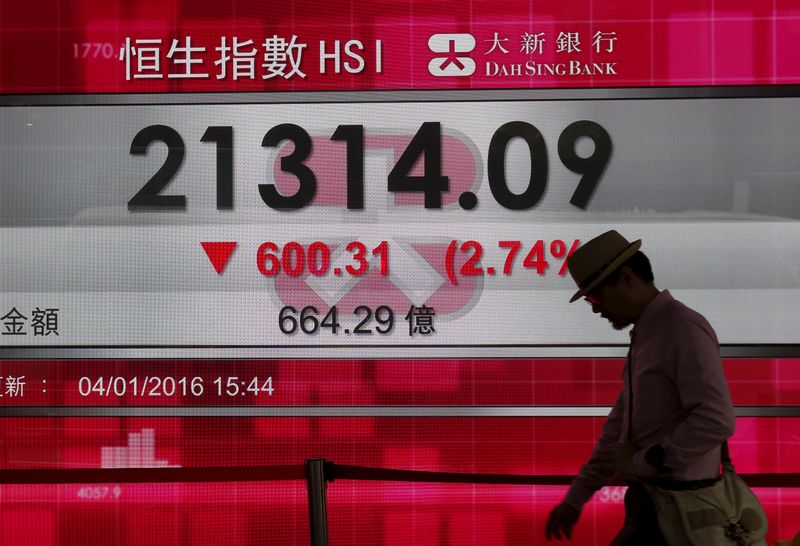Investing.com -- Most Asian stocks fell on Wednesday with losses skewed towards financial shares as a rout in U.S. banks spilled over, while investors also turned cautious before the conclusion of a Federal Reserve meeting later in the day.
Regional trading volumes were somewhat muted on account of market holidays in China and Japan.
Hong Kong’s Hang Seng index was the worst performer for the day, with heavyweight oil and gas stocks coming under pressure from a 5% tumble in oil prices on Tuesday. Hong Kong shares of PetroChina (HK:0857) and China Petroleum & Chemical Corp (HK:0386) lost over 4% each.
Heavyweight banks HSBC (HK:0005) and Standard Chartered (HK:2888) lost 0.7% and 2.1%, respectively.
Asian bank stocks slumped tracking similar overnight losses in U.S. banks, after the emergency takeover of First Republic Bank (NYSE:FRC) by JPMorgan Chase & Co (NYSE:JPM) brewed concerns over a broader liquidity crisis in the U.S. banking sector. This saw Wall Street indexes end over 1% lower.
Australia’s ASX 200 was hit the hardest by a banking rout, with the country’s big four banks - Commonwealth Bank of Australia (ASX:CBA), Westpac Banking Corp (ASX:WBC), ANZ Group (ASX:ANZ), and National Australia Bank (ASX:NAB) falling over 2% each.
Nifty 50 futures fell 0.5% in Singapore trade, pointing to a weak open for Indian bourses on weakness in heavyweight bank stocks.
Asian technology stocks also fell tracking weaker-than-expected results from Advanced Micro Devices Inc (NASDAQ:AMD), which reiterated slowing global demand for semiconductors. The Taiwan Weighted index fell 0.4%, while South Korea’s KOSPI lost 0.8%.
Broader Asian markets retreated as investors dumped risk-heavy assets before the conclusion of a Federal Reserve meeting later in the day. The central bank is widely expected to hike interest rates by 25 basis points as it moves to further curb inflation.
But markets are split over whether a brewing banking crisis and worsening economic conditions will be sufficient to push the Fed into pausing its rate hike cycle.
U.S. inflation is trending well above the Fed’s target range, and the bank has also given no indication that it plans to taper its hawkish stance. Any signals on more rate hikes by the Fed are likely to further unsettle Asian stocks, given that higher interest rates dent the appeal of risk-heavy assets.
Fears of slowing economic growth also weighed on Asian markets this week, following a string of softer-than-expected manufacturing readings from China, the U.S., UK, and euro zone.
